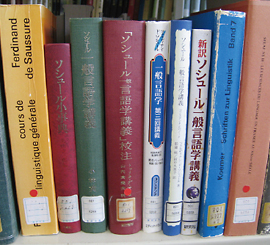Language Science Program

Language is one of the main things that makes us human. The Language Science program aims to objectively understand language, and to shed light on its mechanisms and functions. More specifically, the program works to scientifically and empirically address the questions of what, exactly, human language ability is, and how this language ability is used.

Educational Policy
The Language Science program focuses on not only familiar languages such as Japanese and English, but also less well known languages from around the world, as well as local dialects from various regions of Japan. There are believed to be over 7,000 languages worldwide, with great diversity among them. At the same time, though, certain common (universal) traits have been found that seem unlikely to have come about by mere chance. This program serves to help students cultivate scientific and empirical ways of thinking about language-related phenomena, based on data obtained through a variety of linguistic study, fieldwork, and experiments.
Studying in This Program
The Language Science program features two study models.
1. The linguistics model focuses on the question of what forms can be taken by languages. By learning about uncommon languages rarely available for study at other universities, and by going out for field research exercises, students learn how languages mutate across space and time, and how to analyze languages theoretically.
2. The language and cognitive science model applies the experimental methods of psychology and neuroscience to various phenomena related to language, and students learn the methods used to elucidate the mechanisms of human language perception.


